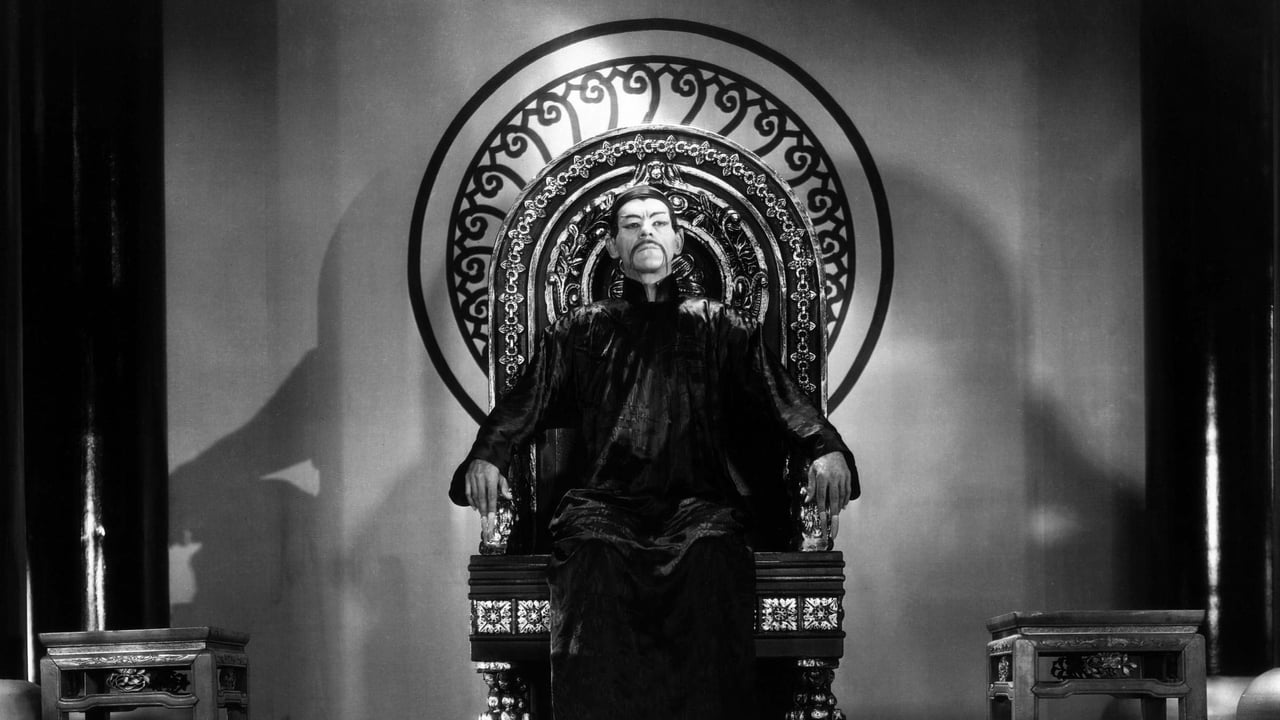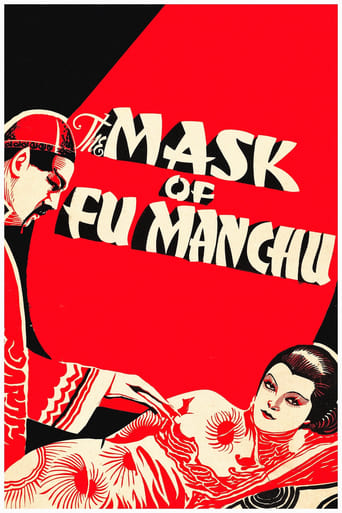



disgusting, overrated, pointless
A Brilliant Conflict
I think this is a new genre that they're all sort of working their way through it and haven't got all the kinks worked out yet but it's a genre that works for me.
View MoreThis is a dark and sometimes deeply uncomfortable drama
View MoreNo stranger to portraying Oriental characters in film, Boris Karloff does a fine job as the Chinese mystic Dr. Fu Manchu in this story, a few years prior to donning the mantle of Mr. Wong, Detective in the late 1930's. He's all but unrecognizable in the role, which for this film is inconsequential, because it's his evil and diabolical nature that takes center stage.The real interesting casting decision here though is that of Myrna Loy as Fu Manchu's daughter Fah Lo See. Funny, but I don't recall her name ever being used in the picture so I guess one has to go with the film's credits. Anyone invested in Loy's later role as Nora Charles from the Thin Man series will sit up and take notice here. Catch her watching Terry Granville (Charles Starrett) getting whipped by Manchu's henchmen and you'll notice a distinct measure of erotic arousal on her part. And she didn't even have a drink in her hand!The other casting surprise for me was that of Charles Starrett as the aforementioned Terry Granville. Starrett was still being cast in non-Western movie roles at this time, and a full eight years before making his debut as The Durango Kid. It's always cool to see him in one of his portrayals where he's not a cowboy.A couple of things struck me while watching the picture that made me chuckle a bit. How is it that on one of these expeditions looking for some ancient and valuable artifact, in this case the Tomb of Genghis Khan, it's almost always found in the very first place the archaeologists dig? That's always amazed me. The other unintentionally funny thing occurred when expedition member McLeod (David Torrence) gets ambushed while guarding the mask and sword. With a knife sticking out of his back, one of the men coming to his aid asks "What happened"? It looked pretty evident to me from where I was sitting.But for all of that, the best had to do with the mask given prominence in the title of the movie. The one that Fu Manchu wears near the end of the picture is not the same one retrieved from the tomb by the expedition. Fu Manchu's mask covers his entire face down to the top of his lips leaving the mouth and chin exposed, and is straight across along the bottom edge. The mask retrieved from the skeleton in the tomb has a diagonal slant on each side of the mask exposing a little more of the face. It seemed to me that if the film makers couldn't get the mask business right, this probably should have been titled "The Sword of Fu Manchu".
View MoreThis film's stagnant characterization was a huge obstacle to my enjoyment of the film Overt racism aside, its more subtle stereotyping through each actor's characterization added insult to injury; not only were the characters constant and static throughout the story, but their original personalities and behaviors were modeled off such clichéd tropes that I could not even have an initial appreciation for each character. For example, just as Fu Manchu is the epitome of evil as the archetypal "mad scientist" villain, the white men (especially Dr. Nayland Smith) are steadfastly "good" as brave, noble heroes. Further, Fu Manchu's daughter embodies the two typical stereotypes associated with Asian women: exotic temptress and submissive object. She is either ordered around by her father as his "ugly and insignificant daughter," or she is making moves toward a captive Terry in her bizarre, sadistic sexual manner. These racist ideas are imposed upon her, yet she herself is never given an identity or even referenced to as an individual. Rather, she always appears and acts in relation to the men of the film.Thus, in addition to the clear racist comments and portrayals of supporting characters , it's this stagnantly sexist and racist characterization that was most problematic for me in "The Mask of Fu Manchu." In stark contrast to the plot, which morphed into a variety of situations throughout the movie, the characters of this film, whether good or evil, Western or Eastern, were altogether uninspired and wearisome.
View MoreThe Mask of Fu Machu is a heavily stylized film about a group of scientists led by Nayland Smith on their quest to acquire the sword of Genghis Khan. The film certainly works under the genre of humor, with its injection of Orientalized crafts and symbolism in almost every scene of the film. In fact, it would be a fun game for viewers to find scenes in the film that does NOT in some shape or form Orientalize or subjugate Asians. However, for it's intended purpose as a sci-fi/horror, it is difficult to look past its blatantly racist message, use of yellow-face, and the ridiculous essentialism of anyone and everyone from the "East" in the film.
View MoreThis movie is strongly driven by a logic of Orientalism. In other words, the British men who are on a mission to "save the world" from Fu-Manchu are actually representative of the "West," and Fu-Manchu is representative of the "East." Historically, the Western civilizations have been put on a direct opposition to Eastern civilizations. The "East," or the "Orient" has repeatedly been framed as a threat, and as the enemy. This movie is a very accurate demonstration of this idea.Fu-Manchu is (or should be), by his nature of being a Chinese man, inferior to the White men. However, because he was able to get three doctorates from Western education, he is able to use this intellect and turn it against the Western empire. Therefore, the White man's empire must be protected by moral, strong, and superior British men. This reasoning is not a simple storyline that is encapsulated within a single movie. The idea that the modern day's audience should simply "ignore" or "take into consideration" the time period in which this movie was made in is not a reasonable request. The ideas that exist in this movie represent a much larger societal and political perspective that Orientalism is a justification and an anchor for war, and this perspective is not only alive, but it is alive and well in our modern society. Therefore, I urge you to think about these concepts as you watch the movie.
View More